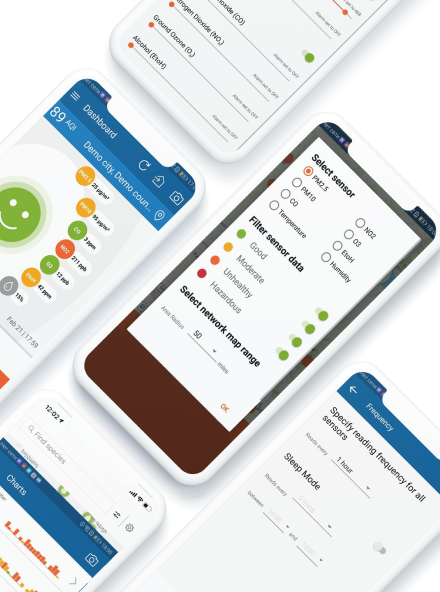
C++ Development: Advantages, Disadvantages, and Applications
26 Oct 2024

As Bjarne Stroustrup, the Danish creator of C++, once famously said: “There are only two kinds of languages: the ones people complain about and the ones nobody uses.” C++ has been widely labeled as a complex language with a steep learning curve; yet, the breadth of its applications and its wide assortment of features more than justify these “accusations.”
High-level, object-oriented, general-purpose - these are some of the most common attributes given to C++. This programming language has been in use for over 3 decades now and has further advanced and evolved over the course of time. Flexible and robust, it now helps solve a myriad of real-life problems as well as support the implementation of low-level manipulation problems.
As a novice in the tech world, you might have a difficult time trying to figure out whether your solution should be built with C++ or another programming language. The purpose of this article is to provide you with some general overview and answers to some FAQs from our previous clients, which can come in handy in your decision-making process. Let’s dive right in!
A Brief History of C++
C++ was designed and developed in 1979 by Bjarne Stroustrup, a Danish computer scientist. He had previously written a thesis paper on programming, which acted as a catalyst to his work on C++. At the time, Stroustrup had just started working in AT&T Bell Labs (a Nokia-owned industrial research and scientific development company) and, throughout his working process, he felt the need for a more flexible and feature-rich programming language - something like C, but more dynamic.
He chose C as a base language for C++, because it was portable, general-purpose, fast, and widely used. The predecessor of C++ was called “C with Classes” and had the following newly-developed features:
- Classes
- Derived classes
- Strong typing
- Inlining
- Default arguments
Throughout the years (1985, 1989, 1998, 2011, 2014, 2017, 2020), new versions of C++ with advanced features were introduced. Presently, C++ ranks 2nd in popularity in the TIOBE Programming Language Community Index, excelled only by Python.
As for the name of this programming language, this is how Stroustrup explains it: “The name signifies the evolutionary nature of the changes from C.” The name “C++” was first used in 1983 by Rick Mascitti, a computer scientist who helped in the development of the language. Thus, “C with Classes” was replaced with “C++.”
Mascitti, though, explained the name as having a touch of a tongue-in-cheek statement. A combination of C’s ++ operator and the standard naming convention of adding “+” as an indicator of an enhanced computer program.
Principles of C++
As with any successful initiative, the development of C++ initiated with a strong set of principles. Let’s have a look at some of them:
- Feature usability in solving real-world problems and building real-world programs.
- Possibility to implement every single feature.
- Independence for programmers to select the programming style they prefer. This style should be supported by C++.
- Facilities that will allow the organization of programs into separate parts as well as facilities that will enable the combination of separately developed parts.
- No type system violations if they are implicit. On the other hand, explicit violations requested by the programmer can be permitted.
- Identical support for both user-created types and built-in types.
- No language allowed below C++.
- “Collaboration” with other programming languages. C++ cannot develop its own distinct programming environment.
- Provision of manual control to the programmer if his intent is unknown.

Advantages of C++
Now that you have some idea about the history behind C++, it’s time to move on to information that can be used in helping you select the right tech stack and determining the suitability of C++ for your particular project.
C++ is one of the oldest programming languages out there and has gone through a long and complex evolution. It is feature-rich, flexible, and highly dynamic with a number of advantages and useful attributes that have made it the go-to language for many. Some of its advantages are
-
Portability: C++ lifts the burden of having to care about hardware usage during the coding process. This means that the language is platform-independent and enables you to run the same program on various operating systems.
-
Object-Oriented Structure: Its object-oriented approach enables such features as:
- Classes
- Inheritance
- Polymorphism
- Data abstraction
- Encapsulation
While this terminology might seem overwhelming, the main takeaway is that these attributes support code usability and ensure the reliability of your project. Besides, coding issues are also handled with more ease and flexibility when data is treated as an object (C didn’t have such a feature). These qualities are what make programmers choose C++ over other languages.
-
Multi-Paradigm: The term ‘paradigm’ implies the planning and style of programming and indicates the logic, structure, and procedure of a given program. The three paradigms of programming are as follows:
-
Generic: when a single idea is used to achieve multiple goals.
-
Imperative: when many statements are implemented to change the program’s state.
-
Object-Oriented: as mentioned above, this refers to the use of methods and classes for more reliability and reusability.
-
Low-Level Manipulation: At a certain level, C++ allows low-level manipulation of data. This is possible due the interconnectedness of C++ with C, which is a procedural language. Low-level manipulation increases a given program’s efficiency in terms of performance and memory.
-
Memory Management: With C++, there is more autonomy when it comes to memory management. In fact, this programming language will let you have full control over this process. This is possible thanks to the fact that C++ supports Dynamic Memory Allocation or DMA. It should be noted that such independence puts more responsibility on the user as compared to memory management by the Garbage collector.
-
Compatibility with C: C++ is highly compatible with C programming language. In the end, it was C that became the basis for the creation of C++. It can be said that every accurate C program can pass for a valid C++ program.
-
Scalability: Another privilege that comes with C++ development is its scalability. The program can run both on a small scale and on a large scale of data. You can also build resource-intensive applications via C++.
-
High Speed: Being a programming language that is based on compilers, C++ does not entail the installation of a specific runtime throughout the program. As it’s all pre-interpreted, the code becomes faster and stronger. Moreover, the compilation and execution also get faster which enables the creation of various programs (games, drivers, GUIs, etc.).
Disadvantages of C++
Now that you know the main benefits of C++ and how useful they are, you may be wondering what disadvantages this programming language could possibly have. C++ development does have certain drawbacks but they do not necessarily create issues or become a hindrance in project development. It all depends on your project specifications and goals. In any case, knowing the disadvantages of C++ will make it easier for you to understand what you need and if C++ is actually suitable for your purposes and expectations.
Well, let’s get into it.
-
Pointers: Pointers appear to be complex tools and require a lot of memory. A single error can result in system crash or anomaly. Debugging can also be a tedious and time-consuming task to handle.
-
Vulnerability in Security: As an object-oriented language, C++ offers high data security, which C or other non-object-oriented languages lack. However, there still can be some security problems because of global variables, pointers, and friend functions.
-
No Garbage Collector: Though we mentioned full control over memory management as an advantage, it also has its downsides. The absence of a garbage collector excludes the possibility for redundant and unnecessary data to be filtered out automatically. This can result in memory increase.
-
Complexity and Less Flexibility: As a multi-paradigm language, C++ is quite complex and can be incompatible with platform-dependent apps. Additionally, this language is very strict when it comes to syntax. A minor mistake can result in a series of issues.
What is C++ Used for?
One of the great things about C++ is that this language has a wide range of uses and applications. So, what is C++ used for in the end? Let's dive right in.
-
AR/VR Apps: C++ is quite popular in the creation of augmented reality and virtual reality applications, which deal with vast amounts of data that change and have to be adjusted regularly. C++ is the perfect choice for such apps, because it’s able to handle the processing of large data and deliver faultless virtual experiences.
-
Games: Did you know that your favorite games like World of Warcraft, Counter-Strike, and StarCraft were created using C++? That’s right, C++ is quite widely used in game development. It was also used to create the Unreal Engine game engine, as well as such gaming consoles as XBox, PlayStation, and Nintendo Switch.
C++ is especially useful for game development because it’s able to optimize the resource-intensive gaming functions. For example, it lets programmers adjust the exact ways data structures and memory allocation should be handled. -
Operating Systems: C++ uses include the development of many popular operating systems such as MacOS and Windows as well as mobile operating systems like iOS. It’s a no brainer that operating systems should be fast and efficient when it comes to system resource management. C++ comes with low-level capabilities which help developers write appropriate code, making even the minute details of an operating system fast and energy efficient.
-
IoT Devices: IoT devices such as home appliances, cars, smartwatches, and medical devices come with embedded systems that are built on C++. The thing is that these devices have only limited computing resources and quite strict power requirements. This is where C++ kicks in to help in the monitoring and efficient use of these resources.
-
Databases: C++ enables you to efficiently structure databases. Such well-known databases as MySQL and MongoDB were built using C++ as their foundation.
-
Web Browsers: C++ has its part in the development of web browsers as well. The back-ends of Google Chrome, Mozilla Firefox, Safari, and Opera are all based on C++, thanks to which we don’t wait for ages for a website to show up on our screens.
-
Machine Learning Tools: C++ helps execute the main machine learning calculations to build well-performing machine learning tools.
-
Financial Tools: C++ is implemented by banks and other financial institutions to create banking, trading, and financial modeling apps. This programming language is fast and powerful enough to enable the processing of millions of daily transactions, high-volume trades, and data simulations.
-
Medical Devices: C++ uses in medicine are also diverse, e.g., MRI machines, lab testing devices, patient information management systems, and so on. This is yet another great example of the application of C++ in the real world.
-
Telecommunications: The modern telecom industry highly depends on the diverse set of functionalities C++ provides. The latter ensures fast and efficient performance by effectively managing resources.
Final Thoughts
There’s virtually no application that can’t be developed with C++. It’s a matter of weighing its pros and cons against your project requirements. If you have any remaining questions, our expert team of C++ developers will assist you with a free project consultation.



